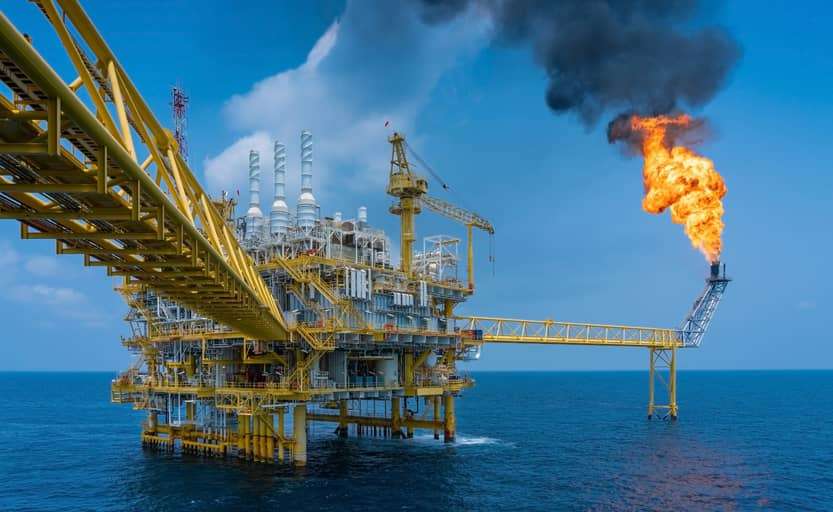Affected by the impact of the COVID-19 pandemic against existing inefficiencies, State-owned Entreprises within the petroleum sector— the Bulk Oil Storage and Transport Company (BOST), Ghana National Petroleum Corporation (GNPC) and the Tema Oil Refinery (TOR) accumulated GHS2.07 billion in losses in 2020, according to the 2020 State Ownership Report.
A breakdown of the total losses incurred by these selected SOEs include: GHS291.02 million incurred by BOST; GNPC (GHS1.62 billion); and TOR (GHS159.12 million).
Meanwhile, accumulated revenues for each of the SOEs consisted of: BOST (GHS649.43 million), GNPC (GHS3.56 billion) and TOR (GHS142.53 million) over the period for each of these SOE’s, respectively.
“…We must be very mindful of how extraordinary the year 2020 was vis-à-vis the vital role this Report plays in providing information for an objective evaluation of SEs’ performance and its value of continued public stake.”
Ministry of Finance
BOST’s Performance
Between 2018 and 2020, BOST’s average net losses, for example, amounted to GHS201.35 million, with loss incurred in 2020 being the highest, representing GHS189.61 million more than that of 2019.
According to media reports in 2019, the Managing Director, Mr Edwin Alfred Provencal averred that BOST required “capital injection of over US$150million to turn things around in order to make a profit and possibly pay dividends in the next two years.”

At the time, he suggested that the state of BOST was “really an issue of concern,” listing a slew of problems including: low assets utilization (20%-30%); other assets are dormant- three depots (Bolgatanga, Mami Water and Akosombo) are not operational; two out of four barges and a tug boat on the Volta Lake have not been in operation since 2012; Tema-Akosombo-Petroleum Pipeline (TAPP) [remaining] idle since 2013.
Similarly, the SOE report highlighted key operational results including inadequate capital and financing of its operations, which resulted in missing the target for an Import PMS as well as achieving below target in imports of automotive gas oil (AGO).
TOR and GNPC Performance
TOR, also recorded net loss for three years in a row (2018-2020) as indicated in the report, though these losses saw a sharp decline in 2020 from 539.82 million in 2019 and GHS382.73 million in 2018.
In 2021, an Africa Centre for Energy Policy (ACEP) report highlighted the long-standing debt of TOR, rising year-on-year. The Energy think-tank noted that more than GHS3.8 billion of taxpayers’ funds went into settling Tema Oil Refinery’s (TOR) debts between 2003 and 2020. Among the issues challenging the progress of the country’s sole refinery has been largely due to gross operational inefficiencies, undue political interferences and huge staff strength that continue to be a heavy toll on the company.
Despite the ravaging effect of the pandemic, reflecting low revenues, GNPC also reported a revenue of GHS3,562.78 million for full year 2020. This was a 1.53 percent increase on the revenue of GHS3,509.08 million recorded in full year 2019. Total revenue for GNPC increased by an average of 49 percent per annum between full year 2016 and full year 2020, according to the report. However, due to the huge costs incurred during the year, the National Oil Company (NOC) recorded a huge loss (GHS1.62 billion).
The NOC, like TOR, has been identified as experiencing unbridled political pressure.
In its annual reports, the Public Interest Accountability Committee (PIAC) has consistently highlighted the use of the corporation to finance quasi-fiscal expenditures of the government; there are also instances of non-documentation of borrowed funds from the Corporation; and the non-repayment of borrowed funds by the government.

Furthermore, a 2019 report conducted by the Institute of Fiscal Studies (IFS) showed that the NOC lost GHS40.5 million in investments made to non-core businesses in just two years (2014-2016). The company’s investment in Mole Motel, Prestea Sankofa Gold, and Airtel– all non-related businesses – were wasted. The report cited GNPC’s expenditure on Corporate Social Responsibility (CSR) of US$28.9million in 2018 as immoderate and hindered the company’s efficiency in its operations.
In 2020, GNPC spent approximately GHS179.63 million on CSR activities in the areas of education (classroom blocks) and training, environment and social amenities (sanitary facilities), economic empowerment, sport (turfs), scholarships and sponsorships, according to the SOEs report.
Performance of SOE’s in Energy sector
That said, SOEs in the Energy sector reported aggregate revenue of GHS26,142.53 million in full year 2020, representing a 27.94 percent increase on the GHS20,433.02 million recorded in full year 2019. ECG’s total revenue of GHS13,796.38 million accounted for 52.77 percent of the entire sector’s revenue in full year 2020. VRA, GNPC and GRIDCO followed with 15.48 percent, 13.63 percent, and 4.64 percent respectively of the sector’s revenue in full year 2020. GNGC, TOR and VRA recorded decreases in revenue between full year 2019 and full year 2020.
The Energy Sector’s Gross Profits amounted to GHS4,879.84 million in full year 2020, up by 30.24 percent on the full year 2019 figure of GHS2,127.40 million. ECG recorded the highest Gross Profit of GHS2,972.06 million in full year 2020, with VRA following with GHS1,067.51 million. GNPC, NEDCO and VALCO recorded negative Gross Profits of GHS754.23 million, GHS355.16 million and GHS165.99 million respectively.
On the whole, the performance of State Entreprises showed that “more urgent and collective work is needed”. SOEs recorded an aggregate loss of GHS2.61 billion in 2020, even though that represents a nearly 50 percent (49.2 percent) improvement on the 2019 aggregate net loss of GHS5.16 billion. On the revenue side, total outturn for SOEs surged by nearly 20 percent from 2019’s performance of GHS37.91 billion to GHS45.23 billion in 2020.
READ ALSO: We Need More clarity on Expenditure Items to be Cut- Tax Policy Analyst





















